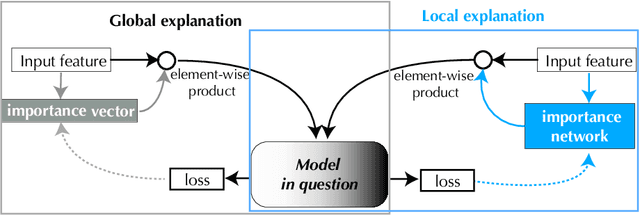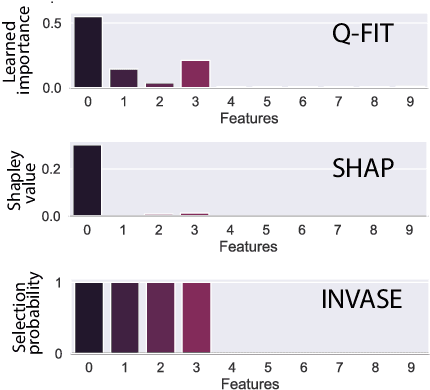Q-FIT: The Quantifiable Feature Importance Technique for Explainable Machine Learning
Paper and Code
Oct 26, 2020



We introduce a novel framework to quantify the importance of each input feature for model explainability. A user of our framework can choose between two modes: (a) global explanation: providing feature importance globally across all the data points; and (b) local explanation: providing feature importance locally for each individual data point. The core idea of our method comes from utilizing the Dirichlet distribution to define a distribution over the importance of input features. This particular distribution is useful in ranking the importance of the input features as a sample from this distribution is a probability vector (i.e., the vector components sum to 1), Thus, the ranking uncovered by our framework which provides a \textit{quantifiable explanation} of how significant each input feature is to a model's output. This quantifiable explainability differentiates our method from existing feature-selection methods, which simply determine whether a feature is relevant or not. Furthermore, a distribution over the explanation allows to define a closed-form divergence to measure the similarity between learned feature importance under different models. We use this divergence to study how the feature importance trade-offs with essential notions in modern machine learning, such as privacy and fairness. We show the effectiveness of our method on a variety of synthetic and real datasets, taking into account both tabular and image datasets.
 Add to Chrome
Add to Chrome Add to Firefox
Add to Firefox Add to Edge
Add to Edge